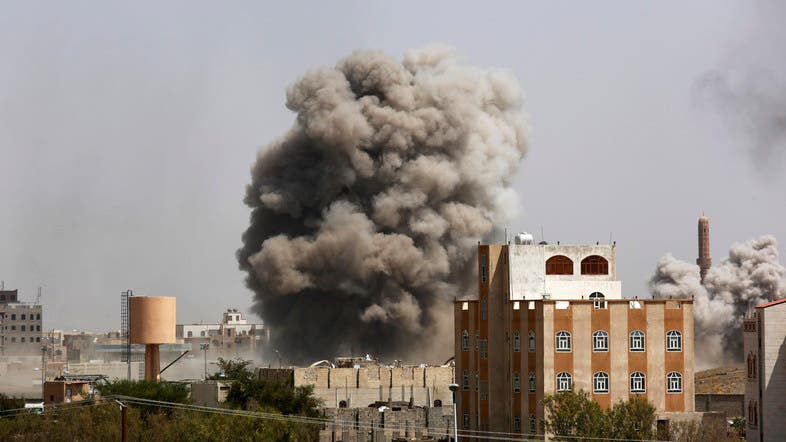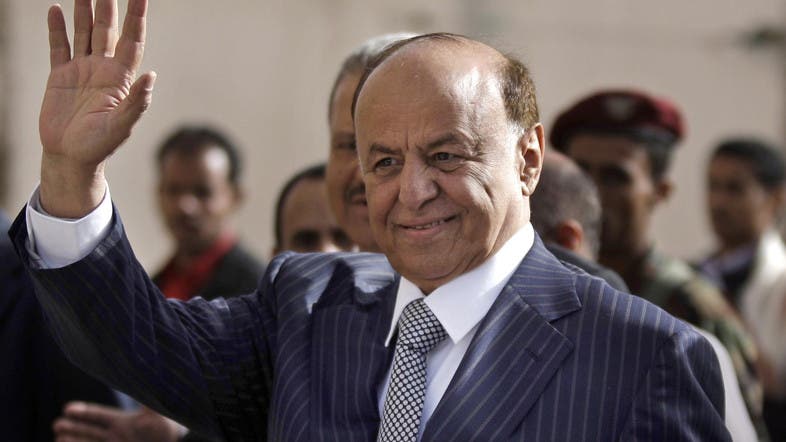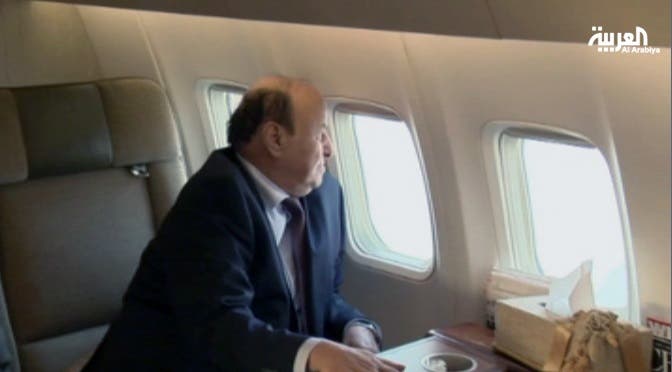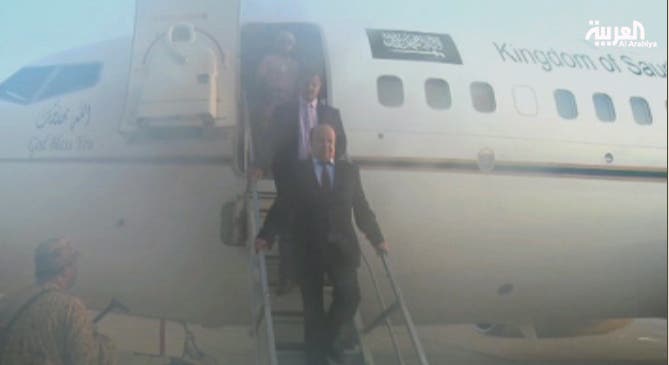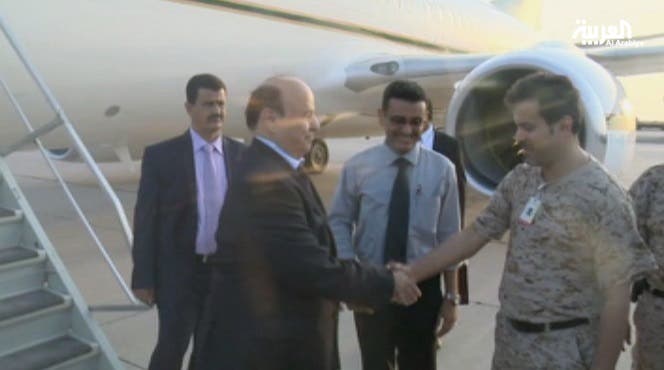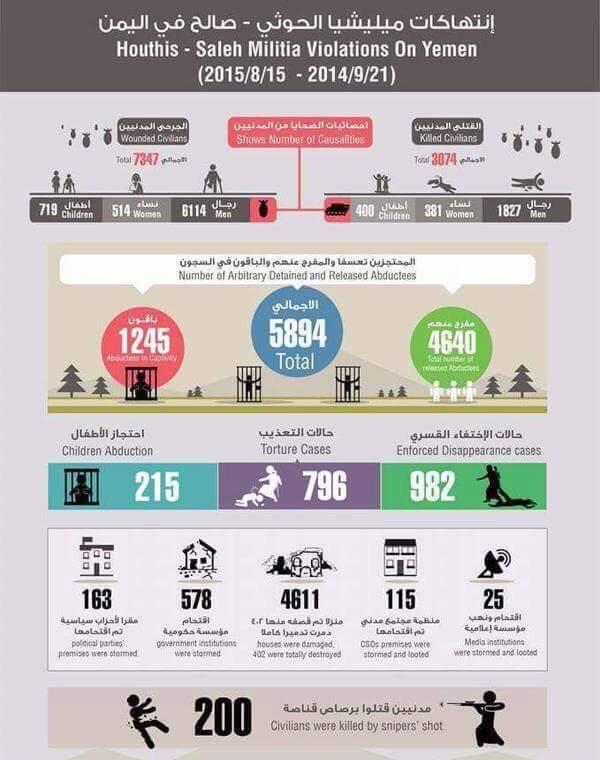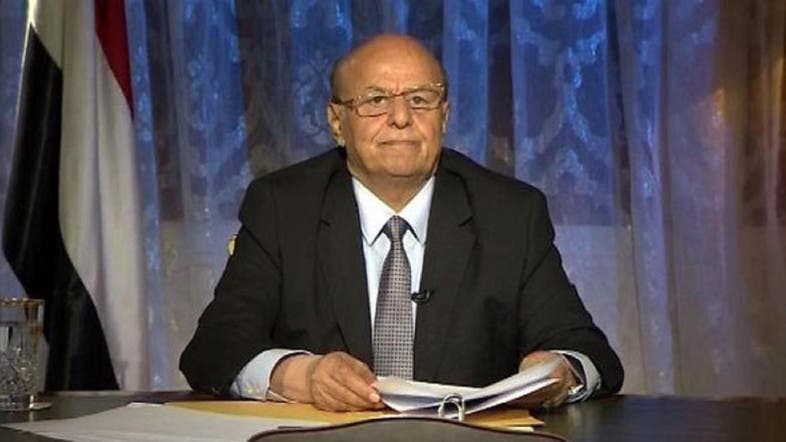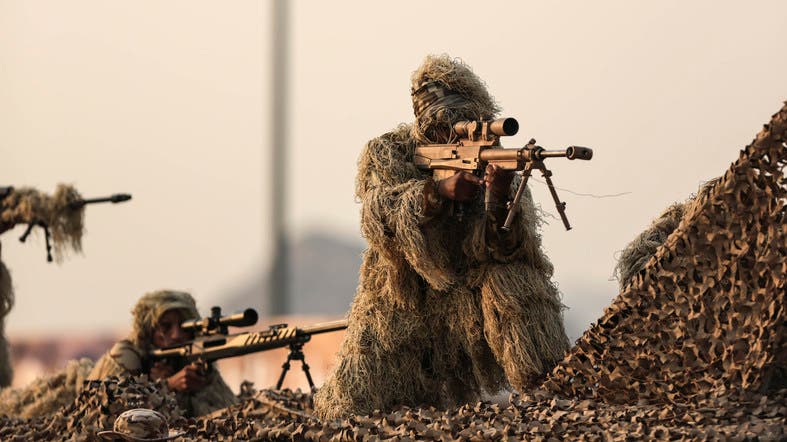BLACKEAGLE
SENIOR MEMBER
Yemen: How Saleh and the Houthi insurgency came to a dead end
Sunday, 20 September 2015
Less than five months after seizing power, Yemen’s rebels are now in a catastrophic situation.
They are trapped without petrol or diesel. They have no electricity, port, airport, financial resources or international recognition. On top of that, due to the heavy shelling, the isolated former president Ali Abdullah Saleh and his leaders are sleeping in basements, and the Houthis are hiding in the mountains.
This is a victorious war that faced difficult circumstances. In March, the Houthis had taken over much of Yemen, with the help of the former President Saleh’s forces. They refused all political solutions, although they were granted the majority of seats in the government.
The rebels will be forced to negotiate – and accept a lower offer than was presented to them a month ago.
Abdulrahman al-Rashed
Today, however, they are hiding in Sanaa and some isolated cities in the north. Hudaydah port has come under heavy shelling by coalition forces to prevent insurgents from using it, and as a result, it is now closed.
Strategic cities lost
The capital Sanaa is now besieged; legitimate government forces, backed by Saudi Arabia and the UAE, are positioned a few kilometers away. These forces came from the province of Marib after taking that over and changing the course of the war. Whether these forces enter Sanaa or not, the situation in Yemen has completely changed for the rebels affiliated to Iran and Saleh. They lost the strategic cities of Aden in the south and Marib in central Yemen. Keeping what they already seized will now cost them dearly.
The United Nations and major countries are now officially dealing with Aden as the temporary capital of Yemen. They are collaborating with the government, which returned to Aden from its exile in Riyadh, led by Khaled Bahah. This is the only representative of the Yemeni people in terms of diplomatic norms and legal recognition. On the ground, the victories in Aden and Marib have encouraged regions to declare loyalty to the government, and against the rebels, without significant clashes. This is why Houthis are trying to lead propaganda battles on the remote northern Saudi border, to keep the morale of their militias and followers high.
Alternative capital
Even without Sanaa, the legitimate government is considered to be presiding over a country with Aden is the alternative capital, as well as the main port and with the only operational airport. Marib is the country’s oil center and vital economic force; without it, Saleh will have to pay for the cost of war and the salaries of his troops from his personal safe at home. Similarly to Saleh, the Houthis also lost their main source of money – and will have to wait until Iran pays them to finance their operations outside Saada.
With the support of Saudi Arabia and its allies, the government in Aden will neither need to run oil-production plants in Marib, nor reopen the 500-km pipeline to the Red Sea. It will deprive its opponents of the main refinery products, without which, they will run out of their stock of fuel and their forces will be impaired. They might also shut down the electricity plant that is also based in Marib. This power plant also provides Sanaa, 80km away, with electricity.
For this, the Yemeni government forces do not have to liberate the rest of Yemen, and can be content with their current victories. For they are already in control of the oil, money and power. The rebels will be forced to negotiate – and accept a lower offer than was presented to them a month ago.
This article was first published in Asharq al-Awsat.
__________________________________________________________
Abdulrahman al-Rashed is the former General Manager of Al Arabiya News Channel. A veteran and internationally acclaimed journalist, he is a former editor-in-chief of the London-based leading Arab daily Asharq al-Awsat, where he still regularly writes a political column. He has also served as the editor of Asharq al-Awsat’s sister publication, al-Majalla. Throughout his career, Rashed has interviewed several world leaders, with his articles garnering worldwide recognition, and he has successfully led Al Arabiya to the highly regarded, thriving and influential position it is in today.
Last Update: Sunday, 20 September 2015 KSA 09:39 - GMT 06:39
http://english.alarabiya.net/en/views/news/middle-east/2015/09/20/Yemen-How-Saleh-and-the-Houthi-insurgency-came-to-a-dead-end.html
Sunday, 20 September 2015
Less than five months after seizing power, Yemen’s rebels are now in a catastrophic situation.
They are trapped without petrol or diesel. They have no electricity, port, airport, financial resources or international recognition. On top of that, due to the heavy shelling, the isolated former president Ali Abdullah Saleh and his leaders are sleeping in basements, and the Houthis are hiding in the mountains.
This is a victorious war that faced difficult circumstances. In March, the Houthis had taken over much of Yemen, with the help of the former President Saleh’s forces. They refused all political solutions, although they were granted the majority of seats in the government.
The rebels will be forced to negotiate – and accept a lower offer than was presented to them a month ago.
Abdulrahman al-Rashed
Today, however, they are hiding in Sanaa and some isolated cities in the north. Hudaydah port has come under heavy shelling by coalition forces to prevent insurgents from using it, and as a result, it is now closed.
Strategic cities lost
The capital Sanaa is now besieged; legitimate government forces, backed by Saudi Arabia and the UAE, are positioned a few kilometers away. These forces came from the province of Marib after taking that over and changing the course of the war. Whether these forces enter Sanaa or not, the situation in Yemen has completely changed for the rebels affiliated to Iran and Saleh. They lost the strategic cities of Aden in the south and Marib in central Yemen. Keeping what they already seized will now cost them dearly.
The United Nations and major countries are now officially dealing with Aden as the temporary capital of Yemen. They are collaborating with the government, which returned to Aden from its exile in Riyadh, led by Khaled Bahah. This is the only representative of the Yemeni people in terms of diplomatic norms and legal recognition. On the ground, the victories in Aden and Marib have encouraged regions to declare loyalty to the government, and against the rebels, without significant clashes. This is why Houthis are trying to lead propaganda battles on the remote northern Saudi border, to keep the morale of their militias and followers high.
Alternative capital
Even without Sanaa, the legitimate government is considered to be presiding over a country with Aden is the alternative capital, as well as the main port and with the only operational airport. Marib is the country’s oil center and vital economic force; without it, Saleh will have to pay for the cost of war and the salaries of his troops from his personal safe at home. Similarly to Saleh, the Houthis also lost their main source of money – and will have to wait until Iran pays them to finance their operations outside Saada.
With the support of Saudi Arabia and its allies, the government in Aden will neither need to run oil-production plants in Marib, nor reopen the 500-km pipeline to the Red Sea. It will deprive its opponents of the main refinery products, without which, they will run out of their stock of fuel and their forces will be impaired. They might also shut down the electricity plant that is also based in Marib. This power plant also provides Sanaa, 80km away, with electricity.
For this, the Yemeni government forces do not have to liberate the rest of Yemen, and can be content with their current victories. For they are already in control of the oil, money and power. The rebels will be forced to negotiate – and accept a lower offer than was presented to them a month ago.
This article was first published in Asharq al-Awsat.
__________________________________________________________
Abdulrahman al-Rashed is the former General Manager of Al Arabiya News Channel. A veteran and internationally acclaimed journalist, he is a former editor-in-chief of the London-based leading Arab daily Asharq al-Awsat, where he still regularly writes a political column. He has also served as the editor of Asharq al-Awsat’s sister publication, al-Majalla. Throughout his career, Rashed has interviewed several world leaders, with his articles garnering worldwide recognition, and he has successfully led Al Arabiya to the highly regarded, thriving and influential position it is in today.
Last Update: Sunday, 20 September 2015 KSA 09:39 - GMT 06:39
http://english.alarabiya.net/en/views/news/middle-east/2015/09/20/Yemen-How-Saleh-and-the-Houthi-insurgency-came-to-a-dead-end.html

